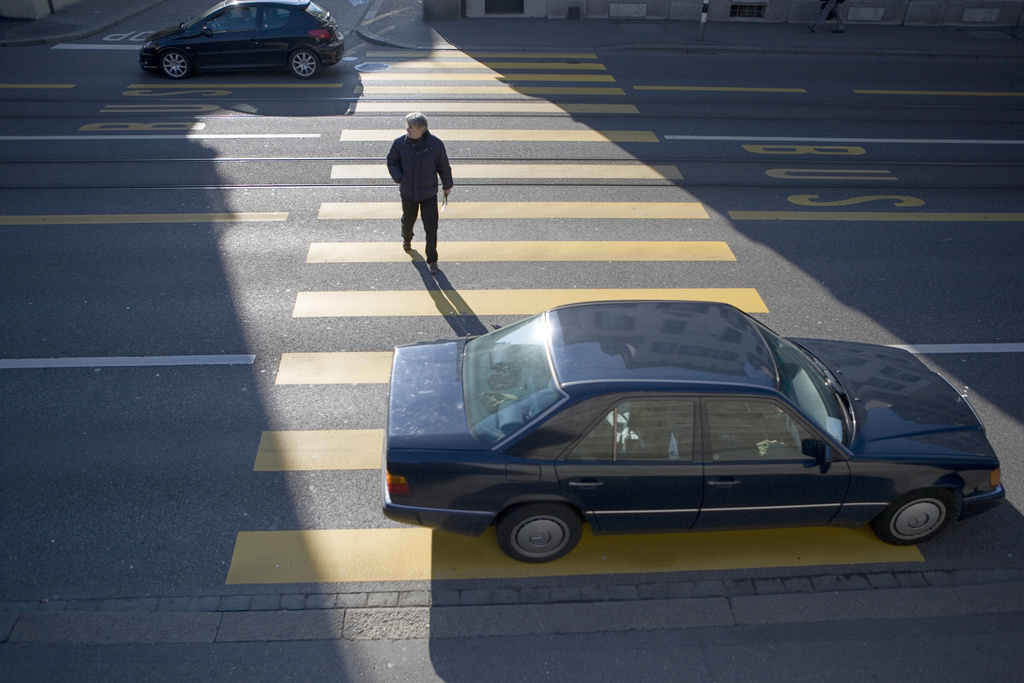Twenty eight dead in Valais coach crash

A coach crash in Valais, southern Switzerland, on Tuesday night has left 28 people dead – 22 of them children.
The dead and injured were among a Belgian school group returning home after a ski holiday, according to the Valais cantonal authorities.
Twenty four children were injured. There were 52 people in the coach.
It is one of the worst accidents in Switzerland in the last 30 years.
The group comprised two school parties from Flanders from Lommel and
Heverlee. They had been staying at a ski resort in Val d’Anniviers, a popular destination. The children were between ten and 12 years old.
The bus was travelling from Sierre to Sion through a tunnel on the A9 motorway, when for unknown reasons it veered and slammed head first into the tunnel wall. The front of the bus was badly damaged preventing people from getting out.
Rescue operation
The alarm was raised just after 9.15pm. More than 200 people were involved in the rescue operation, including 15 doctors, 30 police officers and 60 fire officers. It took more than eight hours.
The authorities told a news conference that the two drivers on the coach had been killed in the crash.
Most of the injured have been taken to four hospitals in the area with three seriously injured transported to the university hospitals in Lausanne and Bern.
The cause of the accident is still not yet known, prosecutor Olivier Elsig told reporters on Wednesday morning. He assured the families that he would do everything possible to ensure that the investigation would take place in total transparency.
The vehicle was new, or nearly new, and was equipped with safety belts, he added.
The Belgian Prime Minister Elio di Rupo spoke of “a tragic day for the whole of Belgium”. He said he would be travelling to Switzerland.
All the victims came from two provinces of the Flemish part of Belgium, Brabant and Limbourg, he said.
Authorities were still identifying victims, added Didier Reynders, the Belgian foreign minister.
Shock
“I have never seen anything like this before. The scale of the accident is difficult to comprehend,” said the Belgian ambassador to Switzerland, Jan Luykx.
He added that for now he was concentrating on practical aspects but that the emotional impact would come when he met the families, who are due to arrive later on Wednesday.
The head of the Valais cantonal government, Jacques Melly, spoke of his deep sadness at the accident and sent his condolences to the families of the victims.
He also thanked the rescuers for their work in extremely difficult conditions. The medical head of rescue operations has already spoken of the shock of rescuers at the scene and that there had never been such a big accident involving so many children.
Priority is currently being given to the victims and their families, local officials added. Dutch speakers are being drafted in to help.
On Wednesday morning the Swiss parliament held a minute’s silence for the victims of the crash.
Tuesday night’s coach accident is one of the worst in Switzerland in the last 30 years after an accident in Pfäffikon near Zurich in 1982 which claimed 39 victims.
In the past few years:
June 2010: a Canadian couple died in Reckingen, Valais. 28 others were injured, four seriously.
October 2008: an accident on the Italian side of the great St Bernard Pass involving a coach full of Neuchâtel Juventus football fans resulted in two deaths and 26 injuries.
September 2006: Nine people died in a blaze in the Viamala tunnel in canton Graubünden after a bus carrying a local ice hockey team was in collision with a car.
April 2005: 13 people died in an accident on the Great St Bernard Pass near Orsières when a coach crashed off the road into a ravine.
Another grave accident occurred in 2001 in the Gotthard tunnel, after a truck caught fire after losing control. Eleven people died, mainly as a result of smoke inhalation.

In compliance with the JTI standards
More: SWI swissinfo.ch certified by the Journalism Trust Initiative















You can find an overview of ongoing debates with our journalists here . Please join us!
If you want to start a conversation about a topic raised in this article or want to report factual errors, email us at english@swissinfo.ch.